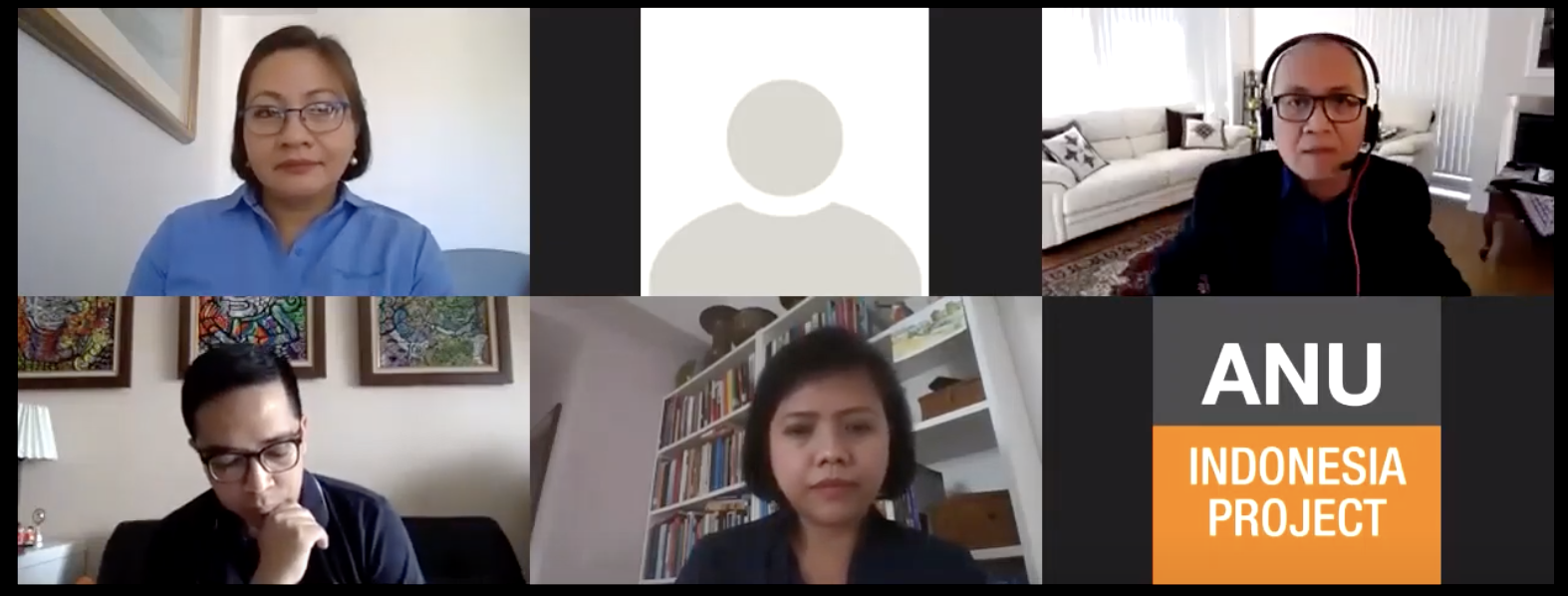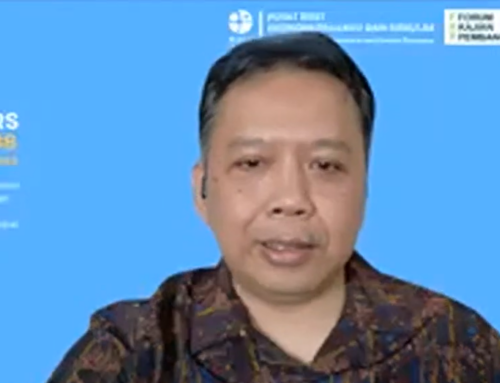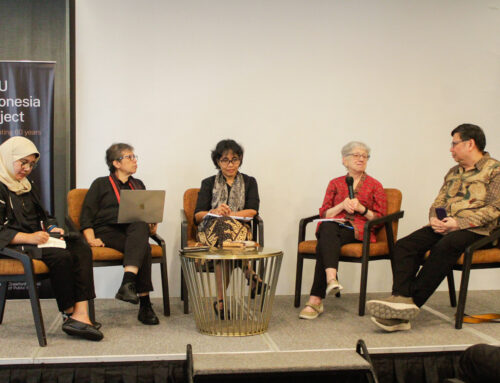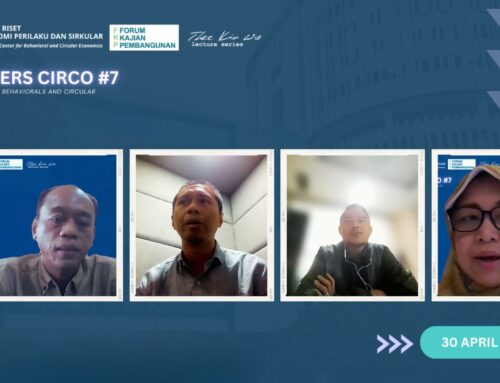Philips J Vermonte (Centre for Strategic and International Studies), Bivitri Susanti (Pusat Studi Hukum dan Kebijakan Indonesia), Imelda Deinla (ANU) Regulations are generally rigid and complex. At times, however, policymakers are faced with a situation where they have to make very quick decisions and follow with rapid actions. The corona crisis has brought this tension up again. In this webinar, we invite Philips Vermonte (CSIS), Bivitri Susanti (PSHK) and Imelda Deinla (ANU) to discuss how governance and regulations interact in this extraordinary time. Vermonte will look at this issue from the global perspective, while Susanti and Deinla will discuss cases from Indonesia and the Philippines, respectively.
KEYPOINTS
- Both advanced and developing nations are affected by the COVID-19 pandemic, highlighting the need for international cooperation and governance for swift decision-making during a global crisis.
- In Indonesia, the lack of governance from the central government has resulted in poor management of the crisis.
- In the Philippines, poor management of the crisis also occurs as strict governance fails to deliver clear direction and effective coordination.
SUMMARY
- The COVID-19 pandemic has affected both advanced and developing nations around the globe. In light of the public health crisis, countries need to look at some underlying issues.
- International cooperation in public health is required as nations are more interconnected than ever due to globalization.
- A legally-binding global framework for public health regulation needs to be mainstreamed. The existing International Health Regulation and Global Health Security Agenda may indicate awareness of the need for a worldwide standard in health. However, the lack of enforcement and monitoring by an international authority such as WHO means countries remain unprepared.
- Programs to fund improvements in public health, such as the World Bank’s Health Security Financing Tool, need to be utilized.
- Regional organizations need to get on board. Swift response led by good governance is required in the wake of a pandemic. However, in the case of Southeast Asia, ASEAN has failed in getting its members to prepare for the pandemic collectively.
- Visionary leadership at the national, regional and international levels that can mobilize multiple stakeholders to collaborate in tackling the issues is needed.
- In Indonesia, tensions arise with the lack of governance from the central government.
- The Indonesian government was in a state of denial at the early stage of the pandemic in February. This condition led to slow response in determining the right regulations and actions, although Indonesia has both Law on Health Quarantine and Law on Disaster Management to provide some regulatory frameworks.
- Indonesia eventually declared the State of Health Emergency and the State of Non-Natural Disaster, providing authority for the COVID-19 Task Force and Indonesian National Board for Disaster Management (BNPB) to tackle the pandemic.
- The two tiers of responses have only resulted in confusion among ministries and institutions, local governments, and society. Without clear command and direction from the central government, each institution seems to act on its own in a contradicting manner.
- The lack of reliable data has also contributed to poor governance as the government is unable to create informed regulations.
- In the Philippines, tensions arise as strict measures from the central government are followed by unclear direction, poor coordination, and ineffective delivery.
- The Philippines is one of the earliest countries in Asia to implement strict measures. Community quarantine across Luzon was made effective in mid-March. Law on disaster management is available to provide a framework for the policy.
- The central government uses strong control and threats in implementing lockdown measures. Using forces of the military and treating the situation like a war.
- However, the implementation seems to be failing as details of the lockdown policy are unclear, and there are no other clear measures aside from the lockdown itself. Delivery of basic services become the main issue.
- Similar to Indonesia, the Philippines also experience a lack of reliable data, followed by a lack of transparency in case-reporting.
| Indonesia | Philippines | |
| Notable Initial Responses from the Central Government | Incentives for foreign tourists through travel discounts and fees for influencers. | Travel ban on foreign nationals coming from China, Hong Kong, Macau, Taiwan and Korea. |
| Physical Distancing Measures | Mass-scale social distancing (PSBB) across Jakarta and in particular cities as proposed by each local government. Implementation is effective around six weeks after the report of the first case. | Community Quarantine (CQ) implemented across Metro Manila, followed by the entire Luzon Islands (ECQ). Implementation is effective around five weeks after the report of the first case. |
| Enforcement of Measures | Taskforce (led by Ministry of Health) | Taskforce (led by Department of National Defense), supported by military and police forces. |
| Delivery of Measures | Unclear directions and poor coordination among authorities. | Vague command, selective control, poor coordination, lack of leadership, poor delivery of basic necessities. |
| Response of Local Governments | Local governments to take their own initiative if physical distancing measures in the area is required. | Local governments to enforce ECQ under unclear rules set by the central government. |
| Response of Citizens | Initiating data collection and providing donations in PPE procurement for the healthcare workers. | Protesting on the poor distribution of necessities, and have started initiatives in data collection and donations for society. |
| Availability of Testing | Scarce; prioritization and allocation of existing test kits are unclear. | Scarce; tests seem to be more readily available for government officials and their families instead of regular citizens at the frontline. |
| Availability of Data | Scattered and not presentable. Lack of transparency. | Scattered and not presentable. Lack of transparency. |





